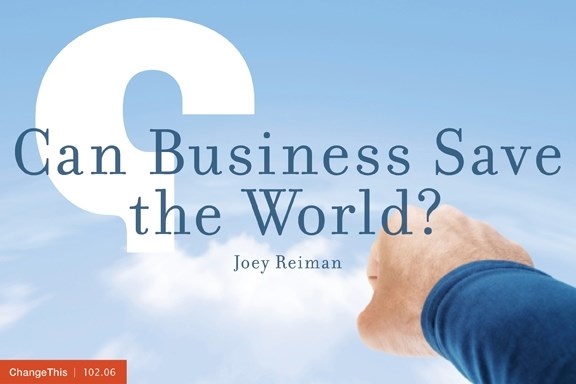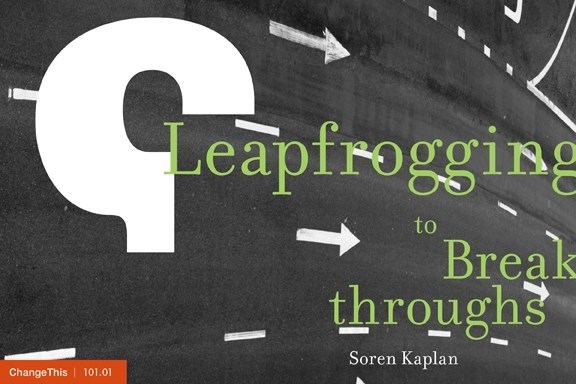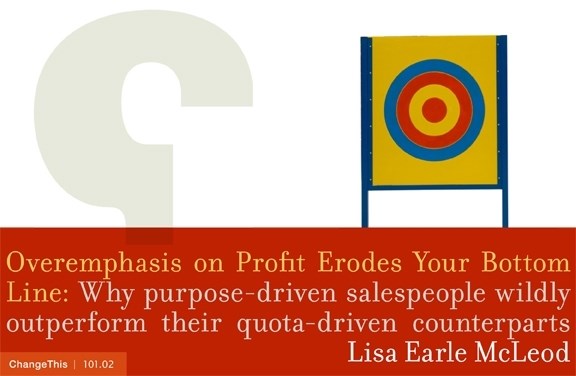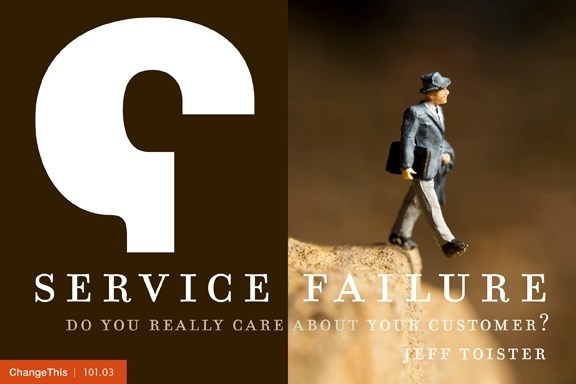ChangeThis RSS
"Business people are the new superheroes. And they are here to save the world. Their super power is purpose. And with it they intend to improve and save billions of lives while putting millions more dollars back into the economy.
No force on the planet is greater than purpose, because purpose gives us our reason for being and doing. When you discover your purpose, you become unstoppable. It works the same for business."
Continue reading
"Surprise is the enemy.
Or, is it?
Could we be overlooking—even resisting—one of the most essential catalysts of personal and business breakthroughs? Could we be ignoring the most fundamental tool that anyone can use to create disruptive innovation and change?
Here's the fundamental problem. Game changers—whether products, services, or new business models—don't necessarily result from big visions, carefully crafted strategies, and meticulous plans. Creating disruptive, game changing innovation requires leaders to live with uncertainty, embrace ambiguity, and respond to both good and bad surprises along the way.
We've been trained to resist the very thing that's needed to leapfrog to the next level. We need to learn to live with—even embrace—what most of us view as the enemy."
Continue reading
"Most people believe that money is the primary motivator for top salespeople and that doing good by the world runs a distant second. That belief is wrong.
If your sales force isn't producing what it's capable of, it may well be that you're overemphasizing profit at the expense of purpose. This observation doesn't come just from personal experience but from hard data. Studies show that companies committed to improving their customer's lives outperform the market by a stunning 15:1 ratio. [...]
A quota-driven mindset spirals into the lowest common denominator sales activities. You start competing on cost not value. You think short-term, fail to understand the customer's environment, and cannot grasp the link between your products and the client's need. It's a slow descent to commodity status."
Continue reading
"Executives may claim to care about their customers, but their actions frequently suggest just the opposite. How else could you explain hitting loyal customers with a sudden 60 percent price increase (Netflix, 2011)? Would a company that cared about service really try to implement a $5 fee on debit card transactions and then defend the move as something that customers would appreciate (Bank of America, 2011)? Can a company that cares about its customers really implement a procedure where pennies are literally stolen from its customers at the point of sale by rounding down the amount of change due when customers pay with cash (Chipotle, 2012)?
I know what you are thinking. You're different. You truly care about your customers and would never resort to price gouging or penny stealing. I hope so. And, the mere fact that you've read this far and may have even been a little indignant about a company skimping on toilet paper speaks volume about your character.
Still, do you really care about customer service?"
Continue reading
"'Reputation' is not a line item we can find on a corporate income statement. But honestly, it should be. Instead it's lurking in there, living pervasively below the surface of the carefully calculated revenues and expenses. And yet, the accountants can't assign a specific number to it.
Think about that for a moment. Companies can leverage the incalculable perceptions of a great reputation (their brand) into bottom-line success and a very real corporate advantage. Sadly, there's also the flip side. Companies can totally crash and burn because of negative reputations, despite solid product offerings. Perceptions may be unquantifiable, but they are infinitely powerful."
Continue reading










